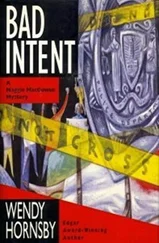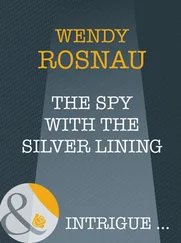I ask questions for a living, so I went in.
“Good afternoon.” The young woman at the counter looked up from a chemistry textbook. “Picking up?”
“No,” I said. After an awkward-feeling moment-what was my excuse for being there?-I pulled out one of my business cards with the network logo in the middle and asked if the owner was on the premises. The woman raised her eyebrows and looked from the card to me, and back again.
“Joe’s out in the shop, but he’s busy,” she said. “Can I tell him what you need?”
I lied: “I have a few questions about running a family-owned business. If he could give me just a minute or two.”
“I’ll ask,” she said in a way that gave me little hope. Probably for the best, I thought. Why waste his time?
A man I guessed to be in his fifties, wearing starched green work pants and matching shirt with the laundry’s logo stitched over the pocket, came forward through the forest of plastic garment bags hanging from the overhead conveyor. He flicked my card as he studied me.
“I heard you were a local,” he said. “My wife watches your stuff on TV.”
I had to chuckle. “But you don’t?”
He shook his head. “Too bleeding-hearts for me. No offense.”
“None taken.”
“Madison here said you have some questions.”
“A few, yes,” I said. “I know you’re a busy man.”
“That I am.” He flipped up a section of the counter and gestured for me to come through. “But if I said no to you, the wife would shoot me. Come on back. We can talk while I work. This time of day I need to keep an eye on things.”
I followed him into a huge room. It was a hive. At the far end, a bank of industrial-size washers and dryers sloshed and whirred while maybe a dozen people operated a variety of pressing and folding machines. Sorters wrapped and tagged the finished work and either hung it on the conveyor or placed it on shelves in what seemed like one seamless, efficient chain. A truck backed into a loading bay and three workers converged to unload bundles of soiled clothing, and then they loaded in clean.
Fascinated, I said, “This is a much bigger operation than I thought it was. Very impressive.”
“You gotta keep growing or you get plowed under. We’ve taken over five storefronts since my dad retired.” Joe weighed a stack of starched, maroon-colored dinner napkins on his hand, flipped the edges and took two off the top before he sealed the stack in plastic and stuck a routing label on it. “You wouldn’t know how big the plant is unless you went down the alley.”
“How many employees?”
“Here at the laundry, we have eighteen. Another four at the dry cleaning plant up in Richmond.” He leaned in close to offer a confidence, though he still had to shout over the noise of the machines. “Up there, they aren’t as anal about the cleaning chemicals as they are here in town. But in case that’s what you’re nosing around about, this ain’t no sweatshop. We run a green business, we pay better than minimum, make our Social Security contributions on time and offer health coverage to full-time workers. And we don’t discriminate against nobody. Hell, take a look around and you can see I got a goddamn mini-U.N. working for me.
“Everything is run strictly by the letter of the labor codes. Here in the People’s Republic of Berserkeley, if I break some law of political correctness, whatever it is at the moment, a squadron of hatchet-faced do-gooders will land on me like a bomb and organize a boycott. Which I can’t afford. Is that what you want to know?”
“Interesting,” I said, laughing. “But I’m more interested in your delivery schedule.”
He scowled. “There a problem? My drivers are bonded.”
“No problem,” I said, watching the truck driver scan his load before signing off on a computer-generated manifest.
“My drivers are good guys. They draw a good wage and they stay with me for a long time.”
Feeling hopeful, I asked, “How long?”
He wrapped another stack of napkins. “Fred’s been with me about a dozen years, Satch eight or nine. Jaime, my dispatcher back there, drives backup if someone calls in sick. He was the first man I hired when Dad retired twenty years ago. I don’t mean to knock my dad, may he rest in peace, but he had a big turnover of drivers. I say it makes better sense to take good care of your key people so they stick around.”
I was disappointed; none of them had been on the job long enough to help me out. I asked, “Do you change their delivery routes regularly?”
“Nope. The schedule is the same as it’s been since forever.” He tapped a city map on the wall behind him that was divided into a dozen numbered zones. “Mondays and Fridays are commercial pick-up and delivery, restaurants, mostly. Tuesdays, Wednesdays, and Thursdays are home delivery. If someone needs something off-schedule, they have to come in for it.”
I pointed to my neighborhood, Zone Nine on his map. “Would there be any reason for one of your trucks to be here on a Monday morning?”
“On a Monday?” He scowled, shook his head, counted and wrapped another stack of napkins. “Never. On Mondays, besides half the restaurants in town, we pick up from the party rentals and caterers-after the weekend events, you know-so we have to scramble. If one of my trucks took a detour into Nine on a Monday, I’d be getting calls about late deliveries.”
“Did you change the schedule after your dad retired?”
“Nope. Give him credit for that. He only had the one truck, and now we have three because we have more customers. But the schedule worked then, and it works now.”
I took out my laptop, loaded Dad’s movie, fast-forwarded to the shot of Bay Laundry’s truck backing out of a driveway, and froze the frame. I turned the screen so he could see. He paused in his work to take a look.
“Where’d you get that?” he asked, chuckling. “That’s Dad’s old van. If it’s still around, it belongs in a museum.”
“This is an old film,” I said. “What does it tell you?”
“That’s upper Zone Nine,” he said with a little shrug. “So that was taken on a Thursday between eight and ten.”
“It was shot on a Monday around eight A.M.”
He shook his head. “Not possible.”
“Can you think of any reason why the truck would be there on a Monday?”
Again he shook his head. “Like I said, we keep a tight schedule.”
The second of his delivery trucks backed into the loading bay and the off-loading, reloading scramble began anew. I saw the driver slip into the men’s room.
“What happens if one of your trucks breaks down?” I asked.
“We take good care of the rolling stock so that doesn’t happen very often. But when one does go down or goes in for regular servicing, we bring in the truck from the dry cleaning shop. They do a pick-up here in the morning and a delivery in the afternoon, so in the case of a breakdown, we just hang on to it for the day.”
“Is that truck the same as the other two?”
“It’s an Econoline, yeah. But it’s unmarked. The Richmond plant is in a crappy area, so we try to keep a low profile up there.”
I took another look around before I offered Joe my hand. “Thank you for your time.”
“Sure thing.” He pulled my card out of his breast pocket. “Mind putting your John Hancock on here? For the wife, you know.”
“A pleasure.” I don’t at all understand the appeal of autographs, especially the signature of someone like me, who has, at most, minor celebrity. But I scrawled my name on the face of the card and handed it back. “Say hello to her for me.”
As he walked me back toward the front, I asked Joe where he was on the date Mrs. Bartolini died. The question seemed to puzzle him, but after a moment to think back, he said, “I was in the navy, stationed in Japan.”
Читать дальше












